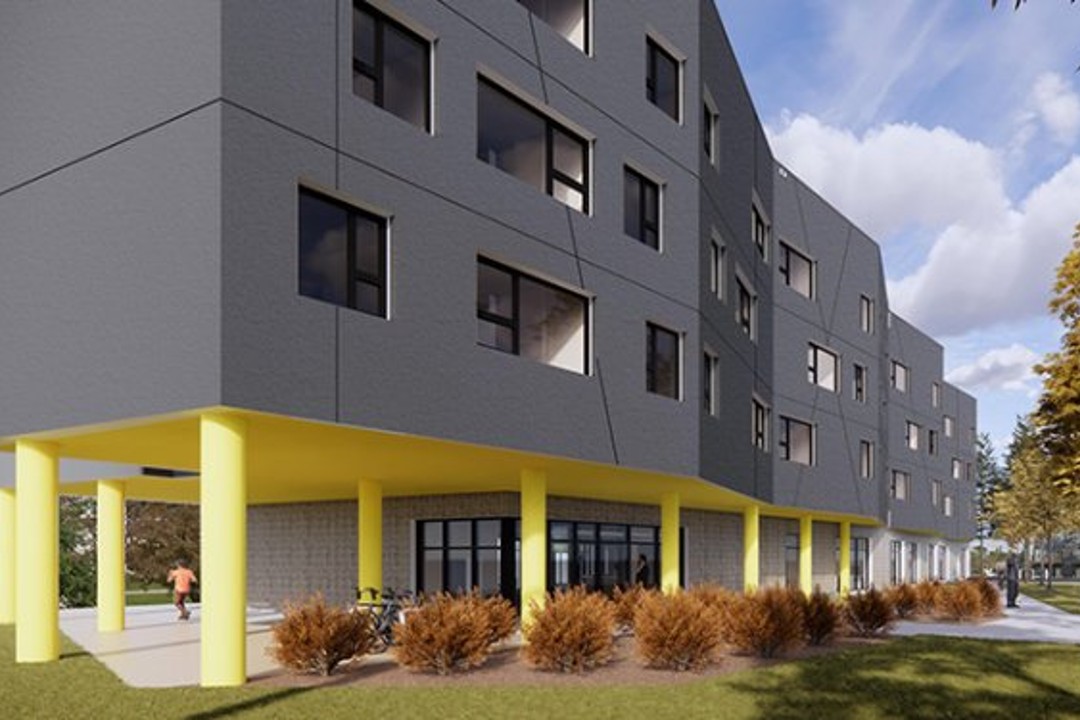The City of Edmonton has established a housing action team with the goal of scaling up investment in affordable housing and accelerating construction.
Thousands of employees work for the city, and given the multifaceted nature of the housing supply crisis, almost all of them work on initiatives that have to do with housing, said the Housing Action Team's director, Christel Kjenner, on Episode 265 of Speaking Municipally. The team convenes the different city departments that help increase housing supply, namely the social development and urban planning branches.
"What we're working to try to bring together is both sides of that housing spectrum and to have a bigger, more holistic picture. We can't do something that impacts housing supply without impacting the whole continuum of housing, whether it's non-market affordable housing or market housing," Kjenner said. "How do we bring that together and think about what steps are necessary to level up our effort across the board?"
Kjenner said the team is working on reducing costs for developers to incentivize more construction. New developments often require upgraded infrastructure. In greenfield developments, that infrastructure can be divided among the dozens of new homes going up, but for an infill project, upgrades can be prohibitively expensive, Kjenner said. The team is looking at a fund that would facilitate cost-sharing among infill developments.
New developments require a fire assessment, where Edmonton Fire Rescue Services calculates how much water comes out of the nearest fire hydrant and if it is sufficient for a planned development. If it's not, the developer is responsible for upgrades. But Kjenner said EFRS has reevaluated standards to see if they are relevant to the type of buildings that are being constructed now.
"They've created this alternative process so that if you've been told you need to have a fire hydrant or upgrade the amount of water for fire water to your site, it's possible that actually just (using sprinklers) will solve it," she said.
Administration is also working to automate the fire assessment process using geospatial technology, though EFRS will still review applications during the development permit stage.
Council voted last February to phase out the tax subclass for multi-unit residential buildings. Properties with four or more dwelling units under one owner are taxed 15% higher than other properties. "Over the next three years, we're phasing out that differential so that it will just be taxed at the same rate as other residential," Kjenner said. "You can see how if you have a higher tax rate, that's going to disincentivize investment in multi-unit housing, which is exactly what we need."

A rendering of an affordable housing development under construction in the Holyrood neighbourhood. (City of Edmonton)
About 50,000 households in Edmonton are in core housing need, which means they spend more than 30% of their before-tax income on housing costs and can't afford to move. More than half of those households can't afford to pay more than about $1,100 per month, and another 8,000 can't afford to pay more than $500 a month. Kjenner said this highlights the need to provide subsidized housing.
Council approved the city's new affordable housing strategy in February 2024. A medium-term goal is to build 2,700 units of affordable housing and up to 1,700 units of supportive housing by 2026. That won't be enough to address the number of households that need affordable housing. "The target is under review, because I think … that we might have an opportunity to increase that target," Kjenner said. "That's certainly something we're looking at every day from a city perspective."
The federal government awarded the city $175 million from the Housing Accelerator Fund in February. The Prime Minister's Office said this funding will help fast-track more than 5,200 new housing units over the next five years and 22,000 over the next decade. To receive the full amount of funding, administration must complete its housing accelerator action plan, which includes the changes to infrastructure requirements, fire assessments, and the multi-unit tax subclass.
The city also said it will refocus efforts to increase the number of secondary suites in the city and expedite the development of surplus city-owned land.
Hear much more about the city's plans to increase the supply of both market and non-market housing on the May 24 episode of Taproot's civic affairs podcast. Housing will also be the topic of the evening at the Speaking Municipally live recording on May 30 at the Foundry Room.
